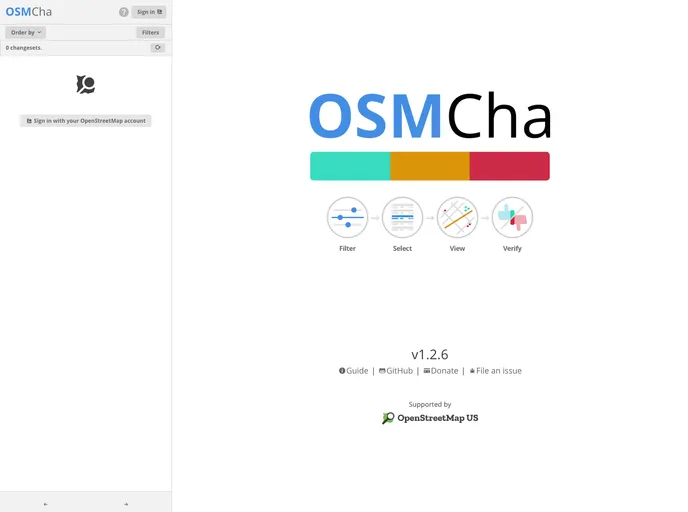
Frontend for the osmcha-django REST API
OSMCha serves as an innovative solution designed to simplify the monitoring and validation of changes made in OpenStreetMap. By bringing together a collection of software components, OSMCha aims to enhance the oversight of mapping activities, making it easier for users to track and verify edits within this extensive geospatial database. This platform is particularly beneficial for those engaged in map development, as it streamlines workflows and promotes accuracy in geographic data.
The frontend of OSMCha is where user interactions take place, complementing its robust backend powered by Django. Together, these components ensure a cohesive experience for users looking to engage with OpenStreetMap changesets. The advantage of this setup lies in the ability to monitor modifications effectively while fostering a collaborative environment for the community involved in mapping efforts.
User-Friendly Interface: The OSMCha frontend is designed with simplicity in mind, making navigation intuitive for users at all levels of experience.
Real-Time Monitoring: Users can observe changes to OpenStreetMap instantly, allowing for immediate validation and oversight of modified data points.
Integration with Django: Seamlessly connects to the Django backend, providing a powerful framework for data analysis and management.
Customizable Development Environment: Supports local development with simple setup instructions using tools like asdf version manager and yarn.
OAuth Support: Facilitates secure user access and authentication, enhancing the platform’s usability while ensuring data integrity.
Extensive Testing Features: Encourages thorough testing of the application before changes are committed, ensuring reliability and performance through local testing tools.
Automated Deployment: Tags pushed to the repository trigger automatic builds for container images, streamlining the deployment process for the production instance.
Community Engagement: A structured approach for reporting issues and requesting new features, fostering a collaborative dynamic among developers and users.